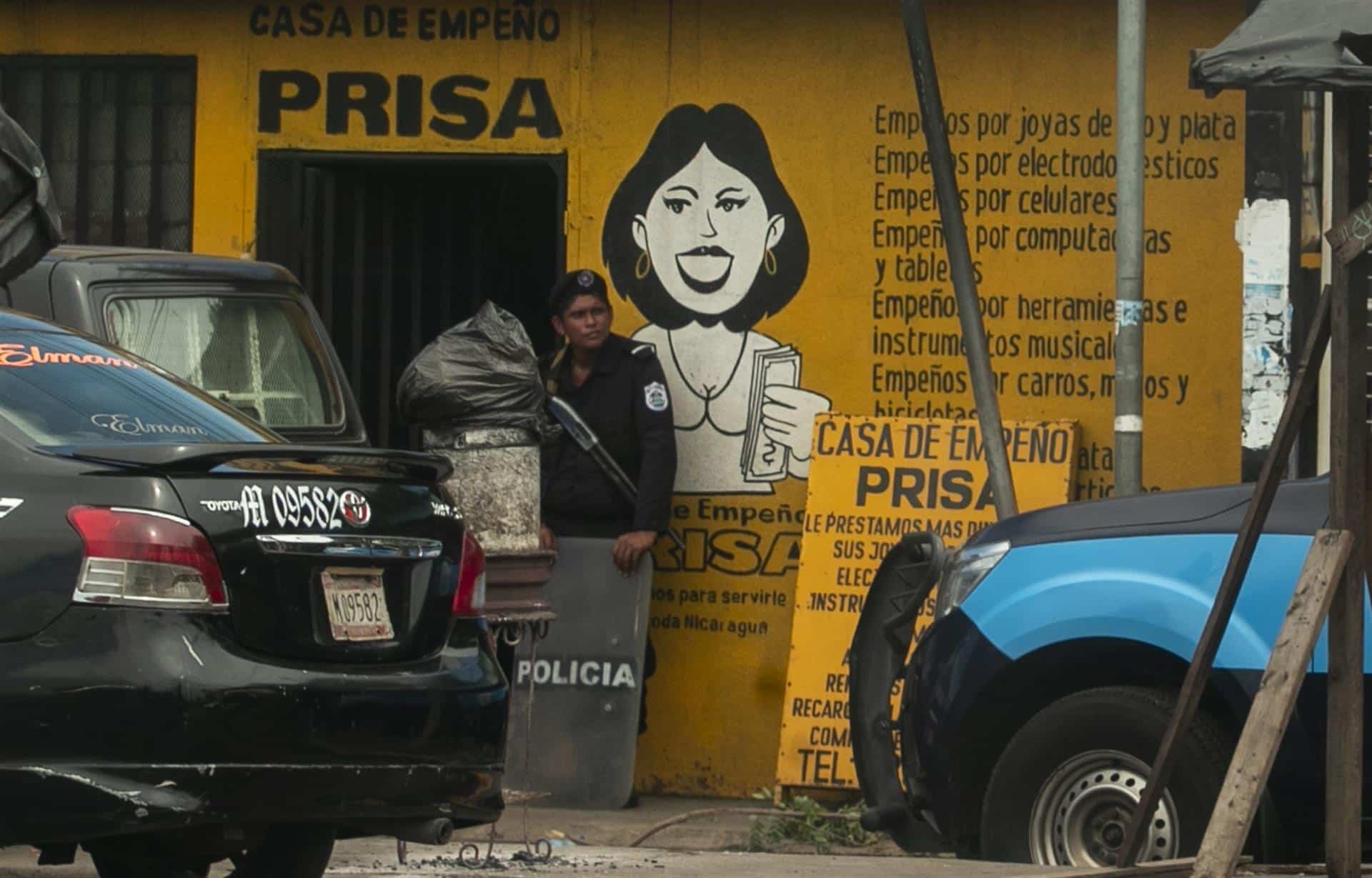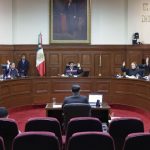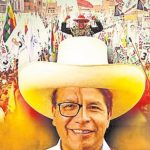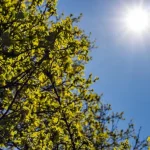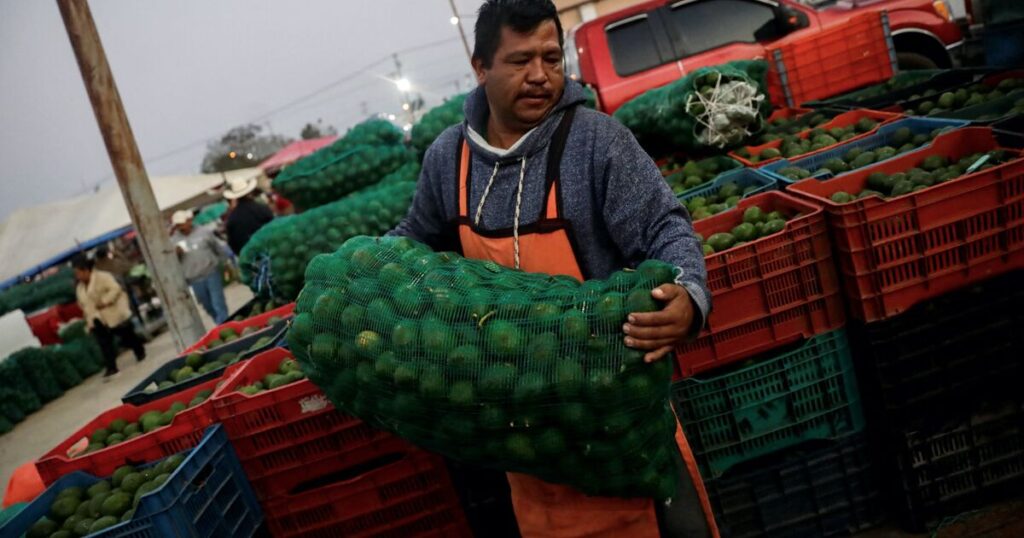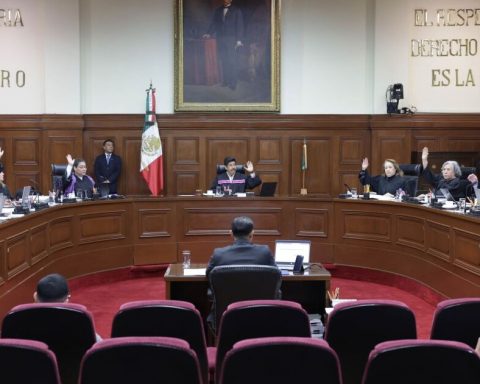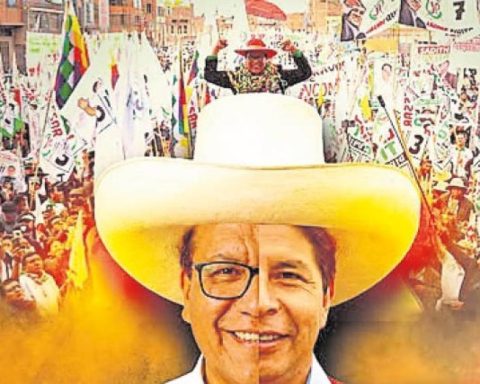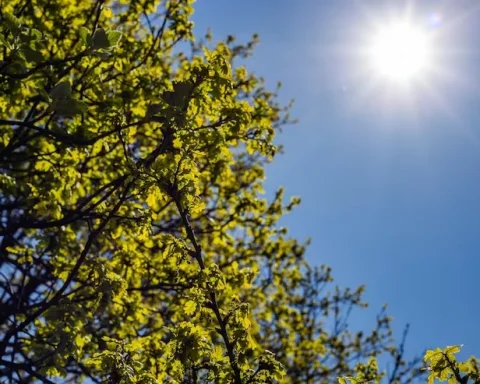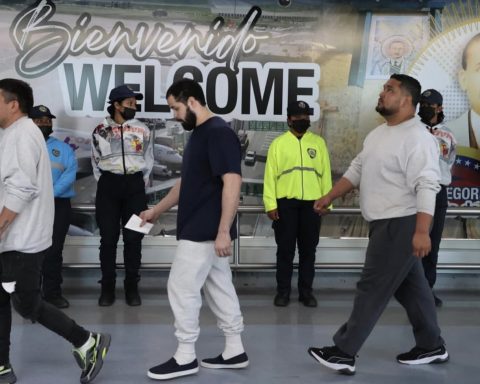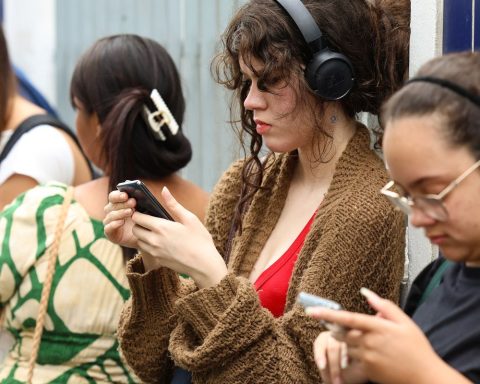The businessman Mario Hurtado, owner of the Prisa pawnshop and other companies intervened by the Government, rejected the accusations of “money laundering” and “fraud” indicated by the magistrate Marvin Aguilar García, and assures that it is a “revenge politics”, because many years ago he left the ranks of the Sandinista Front, and later collaborated with the newspaper La Prensa, as well as with a liberal faction. “All this is a punishment because they consider me a traitor. Some believe that political revenge is the way to develop Nicaragua, but we know that this is not the case”, he told CONFIDENTIAL.
The aforementioned, of Nicaraguan and Mexican nationality, added that he does not intend to hide, flee or change his address after the Supreme Court judge reported that they have notified Interpol, because “I have not committed any crime, and I have no reason to hide in my country. ”.
The request for the International Police (Interpol) to capture the Mexican-Nicaraguan businessman Mario Hurtado Jiménez is not a procedure that is carried out expeditiously, and even if that police organization accepts the request of the Nicaraguan authorities, it does not mean that the police of the country that receives the request (in this case, Mexico), is obliged to comply with it, in addition to the fact that there is an Extradition Treaty between both countries, which limits the cases in which such a thing can happen.
This Wednesday, Judge Aguilar García, vice president of the Supreme Court of Justice (SCJ), announced at a press conference that “the defendant Mario Hurtado Jiménez is a fugitive from justice, for which the authorities requested the international circulation, through the Central Office of Interpol”, which is what the ‘point of contact’ is called between the National Police and the International Police.
If the ‘specialized group’ (the File Control Commission, CCF) approves the request, then the general secretariat sends the red notice to all member countries, which includes identification data on the fugitive, and information on the crime for which he is sought. Each member country decides what action to take on a Red Notice, which is not an arrest warrant, but can help bring a fugitive to justice, sometimes many years after the crime was committed.
That the procedure is followed does not imply an automatic capture and deportation of Hurtado Jiménez… or of any person wanted by Interpol, in the first place, because “all requests are examined by a specialized group of the general secretariat to ensure that they are in accordance with Interpol regulations”, indicates the entity on its website.
This implies determining that the requests of the States “are not motivated by political, military, religious, or racial considerations, nor are they aimed at refugees. This examination is carried out taking into account all the information available before publication”, it is added.
Requirements
“Countries have every right to introduce a red alert, to warn; warn and stop; or warn, detain and extradite, presenting all the pertinent documentation”, because “extraditions are not automatic, but rather a series of requirements have to be met”, he told CONFIDENTIAL a former police chief, who knows how the system works.
“If there is an arrest warrant, it has to be supported. When a country detects the wanted person, it is necessary to inform the country that is looking for him, but also the Court and the Foreign Ministry of the country that found him; if there is an arrest warrant, it must be sent to the country that found the person so that it can start the process, according to its internal legal system, ”he added.
When a fugitive is detected, “Interpol cannot compel the law enforcement authorities of any country to detain a person who is the subject of a Red Notice. Each member country decides what legal value it attaches to a red notice, and which of its law enforcement agencies can carry out arrests.
From that moment other considerations may come into play. In the case of Hurtado Jiménez -who was born in Nicaragua, and acquired the citizenship of the North American country due to having a Mexican father- the provisions of the Extradition Treaty between the United Mexican States and the Republic of Nicaragua, signed in Managua, in February 1993.
The document indicates that “each Party agrees to extradite to the Other, in accordance with the provisions of this Treaty, the person who is wanted by the Requesting Party within its territory for prosecution or the imposition or execution of a sentence, for an extraditable offence.”
Additionally, article three, paragraph one, states that “the Requested Party shall not be obliged to extradite its nationals.” Article four goes further, by detailing the cases in which extradition will not be granted, indicating several reasons, especially “if the crime for which extradition is requested is considered by the Requested Party to be a political crime or conduct related to such a crime”.
Also, “if there are substantial grounds to believe that an extradition request has been made for the purpose of persecuting or punishing a person on account of the race, religion, nationality or political beliefs of those persons or, in the circumstances of the case, extradition is inconsistent with principles of fundamental justice”.
Given the political connotation of the case, the police expert said that there is always the possibility that Daniel Ortega will ask his Mexican counterpart, Andrés Manuel López Obrador, to capture and hand over Hurtado Jiménez.
In any case, he rules out that he could lose his nationality, because it is acquired by descent, but he speculates that “Ortega could ask to be taken out of the country, to request his capture abroad”, but it would be necessary to see if the Mexican president wants to ingratiate himself with the Nicaraguan dictator, disdaining one of the countrymen he is obliged to protect.
56 Nicaraguans wanted
The source cited above said that, although there is extensive jurisprudence to determine how to act before the issuance of a ‘red notice’ (there are also yellow, blue, black, green, orange and purple, for different situations), many times it depends on the considerations policies of the State that detects a citizen who is being sought by another State, and the degree of closeness between the police and judicial authorities of each State.
Apparently, the States and their police forces are not even obliged to actively search for the fugitives, as shown by the fact that there are 56 Nicaraguan citizens (52 men and four women), some with dual nationality, of which 39 (36 men and three women), are wanted by Nicaragua.
There are 69,270 Red Notices in Interpol’s databases, but only 7,166 are visible to anyone visiting its website. These are the names of the list of Nicaraguan citizens who have been requested by Nicaragua, or by other States.
Name Age Nationality
Garzón Angulo Normin Emilio 35 Nicaragua
Ruiz Narvaez Ronaldo Andres 27 Nicaragua
Lopez Cuadra Erick Jose 30 Nicaragua
Herrera Hernandez Wilber Wladimir 33 Nicaragua
Herrera Hernandez Darwing Douglas 31 Nicaragua
Gonzalez Mendez Wilmer Antonio 32 Nicaragua
Zapata Sequeira Leonardo Antonio 39 Nicaragua
Ruiz Erickson Javier 36 Nicaragua
Diaz Flores Anthony 38 Nicaragua
Miranda Lopez Roger Ernesto 32 Nicaragua
Fernandez Sanchez Hefryn Ariel 31 Nicaragua
Cisneros Shan Juan Ramon 51 Nicaragua
Lopez Martinez Ana Yansy 51 Nicaragua
Flores Hernandez Carlos Jose 29 Nicaragua
Mondragon Rios Victorino Manuel 40 Nicaragua
Perez Gonzalez Jose Anival 49 Nicaragua
Ferretti Hernandez Beyker Enrique 22 Nicaragua
Mena Salgado Lazaro Antonio 41 Costa Rican, Nicaraguan
Escorcia Mendoza Noel Nazario fifty Nicaragua
Flores Toruno Rudy Jose 36 Nicaragua
Pichardo Maximino 37 Nicaragua
Vallejos Martinez Wilber Shnayder 26 Nicaragua
Bolainez Jiron Cesar Augusto 43 Nicaragua
Mendoza Cisneros Donly 54 Nicaragua
Flower Hills Loop 48 Nicaragua
Steps Cedeno Ruben 65 Nicaragua
Mendoza Blanco Harvey Joel 39 Nicaragua
Gaitan Bolainez Ismael de Jesus fifty Nicaragua
Quiroz Bolainez Halder Gonzalo 37 Nicaragua
Sanchez Espinoza Jimmy Cruz 30 Nicaragua
Urvina Delber Antonio 49 Nicaragua
Urbina Cabrera Jhonny Antonio 31 Nicaragua
Castro Rivas Henri Francisco Four. Five Nicaragua
Romero Ramirez Nelson Antonio 31 Nicaragua
Amador Gomez Marvin Antonio 3. 4 Nicaragua
Vats Mairena Karina Valeria 44 Nicaragua
Ortega Alexander 57 Nicaragua
Flores Mondragon Jhong Willson 35 Nicaragua
Gutierrez Lopez Luis Ariel 32 Nicaragua
Murillo Centeno Milton Jose 49 Nicaragua
Mena Ugarte William Salvador 29 Nicaragua
Rivas Bejarni 54 USA, Nicaragua
Toruño Espinoza Erlin Exequiel 41 Nicaragua
Pineda Castillo Jose Ramon 76 Nicaragua
Gonzalez Gonzalez Carlos Andres 43 Nicaragua
Vargas Frith Jorgan 42 Nicaragua
Bonilla Seville Delvin Jose 51 Nicaragua
Mendez Ampie Fernando de Jesus 62 Nicaragua
Baca Jaime Erasmo 54 Nicaragua
Castile Pedro Joaquin 62 Nicaragua
Ramirez Guadamuz Olga Irene 42 Nicaragua
Melendez Javier Enrique 42 Nicaragua
Gonzalez Carlos Antony 40 Nicaragua
Blandino Marcos Ramses 59 Nicaragua
Footman Arguello Ronald Antonio 67 El Salvador, Nicaragua
Guard Lacayo José Ofilio 49 El Salvador, Nicaragua
Interpol was created in 1956 in Vienna (Austria), and is the successor of the International Criminal Police Commission (ICPC), founded in that same country, in 1923.
